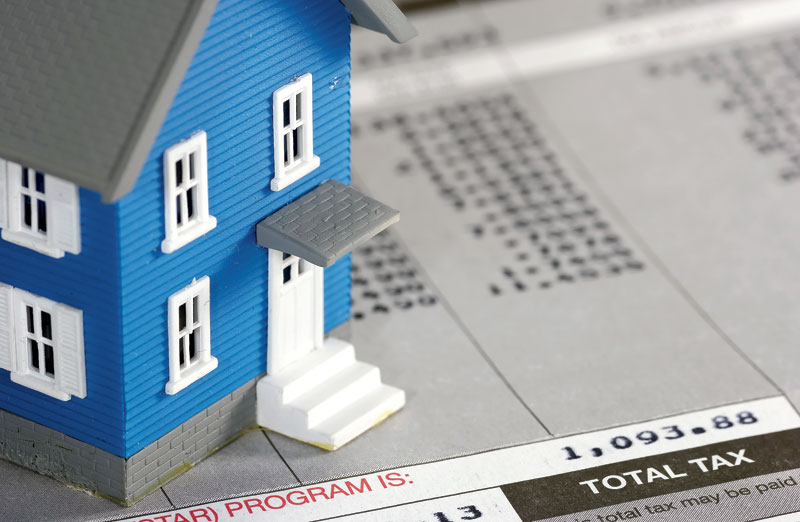Property Tax Conundrum — Falling home values, rising taxes
By Gail Osten
September 2012 View more Finance
 For the second consecutive year, the total assessed value of real estate property in DuPage County decreased 6.6% for the 2011 tax year. This follows 2010’s 5.9% drop. Not surprisingly, the overriding question by homeowners is: “How can my property tax bills increase as my home value decreases?”
For the second consecutive year, the total assessed value of real estate property in DuPage County decreased 6.6% for the 2011 tax year. This follows 2010’s 5.9% drop. Not surprisingly, the overriding question by homeowners is: “How can my property tax bills increase as my home value decreases?”
Simply, your taxes may increase regardless of whether your assessment rises, stays put, or decreases. “The actual taxes on a property are calculated by taxing bodies—schools, city, county, parks, etc.—that set a levy or request the amount of money needed to run their operations,” says Naperville Township Assessor Warren Dixon, Jr. The municipality then divides that amount among all owners in proportion to assessed value of the property they own. And while Naperville offers outstanding services to its residents those services carry a cost.
Still, you have a right to appeal your property tax assessment if you think it’s too high, a first step in decreasing your tax bill. Though it’s too late to appeal the 2011 property tax bill, the following info may prove useful going forward.
If your last assessment came in high, there’s a good chance the next one may, too. So start preparing in advance, and know that you’ll need convincing evidence. The assessor likely has more ammo than you do.
First Step
Peruse your property record card to see if it’s accurate. It’s available at the assessor’s office or online at www.napervilletownship.com (then “Property Search”). Check any physical errors such as wrong square footage or number of bathrooms. Note whether exemptions to which you are entitled (www.dupageco.org/SOA/1475) are included. If there’s an error, seek a correction even if taxes reflecting those errors have been paid.
Filing an appeal
Compared with other area homes, would your home sell for less than the assessed value? If so, then approach the assessor first, and if necessary, progress to the DuPage County Board of Review. Likewise, if the fair market value of your home is accurate, but similar properties in your neighborhood are assessed for less, you have the same options. Dixon says the County Board of Review allots 15 minutes for your case, the assessor’s office then makes its case, and within 30 days you’ll have an answer from the board.
Be prepared with these documents:
- Recent purchase contracts, listings, and closing statements of your property
- Assessments and sales of similar homes—style, age and quality-—in your neighborhood
- Recent appraisal of your property
- Photos of your home and comparable properties in the neighborhood
Also ask yourself: “Would my home be considered ‘dated?’ If your home looks like it’s more 1970s than current, or if it’s experienced some damage like a flooded basement that could affect the sale price, try filing an appeal so it’s not assessed at 100% of the value.
By the way, I’ve heard that while using foreclosures to make your case for a lower assessment value may not work at the township or county levels since banks undersell foreclosures, it may ultimately pay to appeal to the Illinois State Board of Review. Seems they are looking into foreclosure values more closely these days.
Deadline to Appeal
Important! Watch the Naperville Sun in the fall for a published listing of property assessments. There’s no set date for publication except it must be published by November 15 in DuPage County. You have 30 days from publication to file a formal complaint for the most current tax year, so this publication date is important.
Finally, you can hire a professional for between $300 and $500 to help you with your claim. If you can recoup this savings annually, it could be worth the price.


